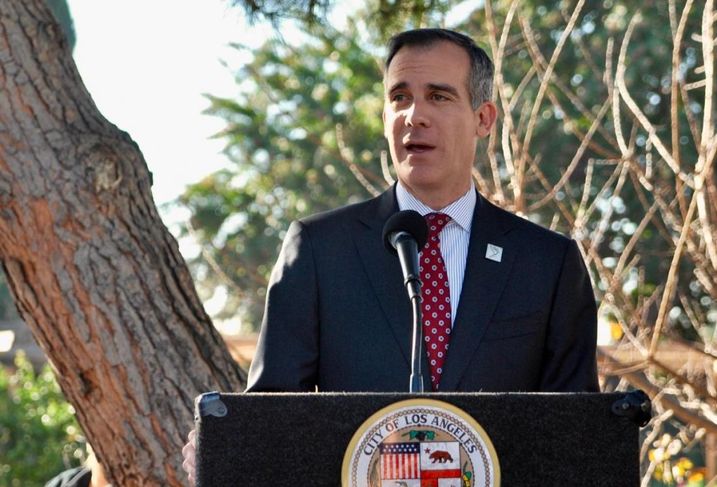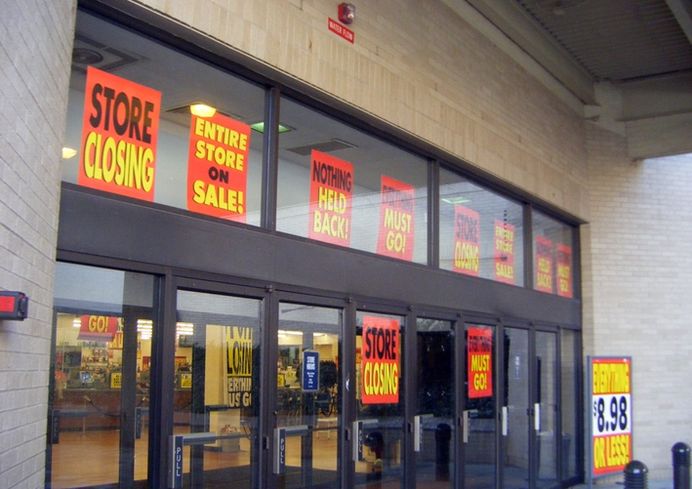
March 22, 2020 Joseph Pimentel, Bisnow Los Angeles
As cities across the state halt or prepare to stop commercial evictions to help businesses impacted by the novel coronavirus pandemic, some property owners and landlords are questioning if they will receive relief, too.
Last week, Los Angeles, San Francisco, San Diego and other cities either passed or are planning to pass some sort of temporary moratorium on evictions for commercial tenants, either because their business has been slowed down or it has been ordered to close to prevent the spread of the coronavirus. Late Sunday, the National Multifamily Housing Council, a lobbying group for the multifamily industry, urged its members to enact 90-day moratoriums on rent for tenants that can show they’ve been impacted by the coronavirus, which causes COVID-19, and asked for a 90-day halt on rent increases.
“We also recognize that most rental properties are owned by individuals and small businesses that have financial obligations, including mortgages, utilities, payroll, insurance and taxes,” the council said in a statement. “If residents cannot pay their full rent obligations because of the COVID-19 outbreak then owners are at risk of not meeting their own financial obligations. This puts the individual property and the larger community in which it is located at risk.”
Sonnenblick Development Chairman Bob Sonnenblick said any moratorium on evictions needs to be done bilaterally so that it benefits both tenants and landlords.
I understand [what the mayors are trying to do] but the problem is when every tenant in the entire city stops paying rent, and the landlords look to their lender and say, ‘I’m not allowed to evict this tenant, Mr. Lender can you please stop asking me to pay my mortgage?’ If the lender says no, as an owner, I’m in big trouble,” Sonnenblick said.
Sonnenblick, who owns office buildings in Los Angeles, isn’t personally affected, because most of his tenants are federal and local government agencies. However, as a building owner, he understands the plight owners and landlords go through if a tenant can’t pay rent.
“This is a two-part structure and solving only half the problem is going to create huge foreclosures when every tenant stops paying rent,” Sonnenblick said. “If the tenants stop paying rent and the owners can’t pay their mortgage, they’ll go into default and the banks are going to foreclose. You’re going to see mass foreclosures across the city.”

“Angelenos who own businesses in our city deserve peace of mind,” Los Angeles Mayor Eric Garcetti said in a statement Tuesday, adding that eligible tenants will have up to three months following the end of the local emergency period to repay any back due rent. “The moratorium will help ease some of the deepest concerns while we get through this crisis together.”
In San Francisco, Mayor London Breed’s moratorium would prevent any small to midsized business that make less than $25M in annual gross receipts from being evicted. The eviction moratorium will be in effect for 30 days starting March 17, and can be extended for another 30 days.
The moratorium evictions on commercial tenants come on the heels of similar moratoriums by those cities to help residential tenants.
San Diego is also drafting an ordinance to halt residential and commercial evictions, which the council will vote on next week. At least 14 cities across the state are weighing similar eviction bans.
The moratorium comes at a time when businesses across the state such as restaurants, bars, nightclubs, quick-serve restaurants, malls and office buildings have either closed or are opening at limited capacity to prevent the spread of the coronavirus. As of Sunday afternoon, California had 1,500 positive coronavirus cases and 27 deaths, according to state health officials.
Under normal state law, municipalities are prohibited from regulating commercial evictions but given the current crisis, Newsom on Monday allowed for it after signing an executive order. But market stakeholders have several questions. Will building landlords, those who retail and office tenants pay, receive relief from banks or credit unions during the moratorium? Can landlords ask for partial rental payments during this period so that they can continue to operate?

Newsom’s executive order asks financial institutions holding home or commercial mortgages to implement a moratorium on foreclosures. It is unclear how cities could enforce that.
“For a lot of these things, the devil is going to be in the details,” Cox, Castle & Nicholson partner Corin Korenaga said. “What we’ve seen to this point are only announcements … Those announcements have just set up a general framework. We haven’t really seen the actual ordinances.”
Korenaga said it is still early, but he and his company have received calls from concerned landlords about this situation. One landlord called asking how he should respond after a commercial tenant told him he wasn’t going to pay rent. “Now, we’re seeing the ripple effects of this,” he said.
Korenaga said it is clear that the moratoriums are not deferring rent payments. “Tenants remain obligated to pay rent during the moratorium,” Korenaga said. “Landlords simply cannot evict during the moratorium.”
Landlords and property owners have questioned the mayors move especially since, so far, they are not seeing any relief. Though landlords agree that this is an unprecedented time and want to support their tenants, the moratoriums don’t relieve them of their duties to pay rent. Landlords also have to pay a mortgage and other workers servicing that building.
“Legally, the city can do it,” Rising Realty Partners CEO Chris Rising said of the moratoriums. “But this absolutely does not relieve a tenant from their rent obligation. They have a lease. The order doesn’t deal with a landlords ability to service their mortgage or pay people in the buildings to perform services if there are tenants who cannot pay rent. So there are a lot of unanswered questions.”
Rising, whose companies own and manage a $1.5B portfolio totaling 5M SF of commercial real estate in Southern California and Denver, said restaurants and bars in his buildings have been hit the hardest.
“I know some of them have been able to switch to takeout and delivery only, but they are not going to see the same amount of volume that they had before,” Rising said.
Sonnenblick Development Chairman Bob Sonnenblick said any moratorium on evictions needs to be done bilaterally so that it benefits both tenants and landlords.
I understand [what the mayors are trying to do] but the problem is when every tenant in the entire city stops paying rent, and the landlords look to their lender and say, ‘I’m not allowed to evict this tenant, Mr. Lender can you please stop asking me to pay my mortgage?’ If the lender says no, as an owner, I’m in big trouble,” Sonnenblick said.
Sonnenblick, who owns office buildings in Los Angeles, isn’t personally affected, because most of his tenants are federal and local government agencies. However, as a building owner, he understands the plight owners and landlords go through if a tenant can’t pay rent.
“This is a two-part structure and solving only half the problem is going to create huge foreclosures when every tenant stops paying rent,” Sonnenblick said. “If the tenants stop paying rent and the owners can’t pay their mortgage, they’ll go into default and the banks are going to foreclose. You’re going to see mass foreclosures across the city.”
For Rising, he understands what his tenants are going through and plans to support them, and April 1 is right around the corner. He plans to speak with his tenants and his lenders to see how they can work through this.
“Everyone is so universally affected,” Rising said. “This isn’t like the tech boom and bust. This is a national emergency. Everyone is talking about how this compares to post-9/11. But this is not like 9/11. We are in a time of war. But we’re going against this virus and doing things that have never been done.”
